We really cannot recommend online mattress shopping enough. All you have to do is choose a mattress, input your information and voila -- a new mattress will appear on your doorstep. There's no awkward interactions with sales people, you don't have to try out mattresses in front of a store full of other shoppers and the waiting period is typically less than a week.
The reason most people are hesitant to do the online mattress thing is they can't try a bed out before buying. That's not an issue though. Most online mattress companies offer at-home sleep trials that last between a few months to a whole year. If you decide to return the new mattress once you've slept on it for a few nights or weeks, the company will pick it up and refund your purchase.
Even though there's little risk in buying a mattress online, you don't want to spend nights tossing and turning as you try out dozens of mattresses. After all, the wrong mattress for you can wreck your sleep and you don't want to have to buy and return a bunch to find the right one. To do that, you'll want to narrow down your choices to the one or two mattresses that seem like the best mattress for your preferred sleeping position and the kind of support you need. And, of course, it needs to be a good fit for your budget.
Luckily, there's a wealth of mattress and mattress company options. Regardless of whether you want a latex mattress, coil mattress, memory foam mattress, innerspring mattress, hybrid mattress or something different, there's definitely a mattress out there that will accommodate you and your sleeping position, whether you're a stomach sleeper, side sleeper, back sleeper or combo sleeper.
But who has the time and patience to sort through all of these mattress options when they want their mattress shopping experience to be easier and faster? That would be me. I've sorted through the many online mattresses to find the best of the best.
I went through all of the online mattress manufacturers and companies (there are around 175 right now, by the way), scouring social media and reviews to find the best of the best to test. After all of my research and testing, here's what I came up with for the 10 best mattresses you can buy online.
No matter what kind of mattress you prefer, whether you need pressure relief, want a firmer mattress or an adjustable mattress or one that offers motion isolation or you're just on the hunt for more comfort, I'm sure you will find the best mattress for you and your sleeping style on this list.
Best mattresses of 2021
| Mattress | Buying Info | Mattress Type | Price (Queen) | Sleep Trial Period | Warranty |
|---|---|---|---|---|---|
| Layla Hybrid | See at Layla | Hybrid | $1,699 | 120 nights | 10-year limited |
| Casper Original | See at Casper | Foam | $1,095 | 100 nights | 10-year limited |
| Tuft and Needle The Hybrid | See at Tuft and Needle | Hybrid | $1,595 | 100 nights | 10-year limited |
| Avocado Green | See at Avocado | Hybrid | $1,499 | 365 nights | 25-year limited |
| Amerisleep AS2 | See at Amerisleep | Hybrid | $1,330 | 100 nights | 20-year prorated |
| Leesa Legend | See at Leesa | Hybrid | $2,299 | 100 nights | 10-year limited |
| Helix Midnight Luxe | See at Helix | Hybrid | $1,749 | 100 nights | 15-year limited |
| Helix Plus | See at Helix | Hybrid | $1,499 | 100 nights | 15-year limited |
| Ghostbed Flex Hybrid | See at Ghostbed | Hybrid | $1,459 | 101 nights | 25-year limited |
| Purple Hybrid Premier 4 | See at Purple | Hybrid | $2,299 | 100 nights | 10-year limited |
Pricing is shown below for a twin mattress, but I list the full range of available sizes and prices within each entry. I update this list periodically.
Read more: How to break in a new mattress: What to do and how long it takes
Mattresses require an adjustment period to get used to, and that's true of the Layla Hybrid, too, but as soon as I plopped down on this mattress, I knew it was going to be my favorite. It's made of a layered combination of gel memory foam, airflow support foam and individually wrapped pocketed coils that provide plenty of firmness level support while also allowing enough give to make the mattress feel plush and comfortable right away.
The middle layer is made from copper-infused foam, which is great for a hot sleeper because it is designed to pull heat away from your body so you stay cool while you sleep, and the technology worked impressively well. I stayed cool throughout the night, even in the middle of summer in a house without central AC. The copper is also antimicrobial, so it helps prevent a buildup of bacteria that can cause breakdown and odors over time. I haven't had the mattress long enough to speak to that, but the thought of sleeping on a cleaner mattress, especially since the goal is to keep them for a decade or so, adds another layer of appeal.
The Layla Hybrid had the least motion transfer out of any other on the list, so I didn't wake up at all when my boyfriend tossed and turned -- this motion isolation feature is a huge comfort level perk to someone who's been seriously considering getting a sleep divorce. The Layla is also the only mattress on this list that you can flip. And not only can you flip it, one side is soft and one is firm, so you can customize your sleeping experience based on how your body feels at any given time.
The Layla Hybrid comes in twin to California king sizes and prices range from $1,299 to $1,899.
If you're looking for a firm mattress, you can end your search with the Casper Original. While I'm more of a soft mattress kind of gal, firmer mattresses like the Casper mattress are designed to align your spine and relieve pressure in all of the right places so you can have a pain-free night and a stiffness-free morning. And this Casper mattress did just that.
When I first got into bed, I didn't have that "ahhh" moment that comes from a plush, softer mattress, but as I settled in, the mattress started to slowly form to my body. The longer I lay there, the more comfortable I felt. When I woke up in the morning, I didn't have any throbbing neck or back pain, something that I have been struggling with since my last spring mattress started caving in. I attribute that to the Zoned Support technology of the Casper.
The mattress is separated into three zones that are designed to provide the ideal spinal alignment. The foam near the shoulders and upper body is softer to give you relief in those areas, while the firmer foam under the hips, waist and lower back keeps your spine properly aligned. Because of this zoned system, you may have to experiment to find the right sleeping position on the mattress, but once you do, you'll likely notice a reduction in pain over time. And, as an added bonus, the mattress cover is made from recycled bottles -- 57 of them, to be exact -- so you can help save your back and the planet at the same time.
The Casper Original comes in twin to California king and prices range from $595 to $1,295.
When it comes to comfort, I always considered big plush pillow-top mattresses the holy grail, so I was skeptical of these memory foam-type mattresses. But the Tuft and Needle Hybrid mattress stepped up to the plate and almost hit a home run. The foam mattress is made of carbon fiber foam, individually wrapped pocketed coils and ceramic gel all wrapped up in a tufted pillow-top mattress cover that's ideal for those who prefer a side sleeping position.
The T&N Adaptive foam felt soft and comfortable and allowed just enough give to take the pressure off my shoulders and hips without making me feel like I was sinking or rocking from side to side. The mattress cover added an extra comfort layer that felt similar to what you'd get if you added a mattress topper.
The only thing I'd knock about it is that it did seem to have more motion transfer than some of the other options on the list. If you sleep alone, it's not a big deal. But if you sleep with a partner who tosses and turns a lot, or a German Shepherd mix who likes to act out his vivid running dreams in the middle of the night, you may want to go with something with better motion isolation or opt for Tuft and Needle's original mattress, which is made almost solely of memory foam and absorbs movement better.
The Tuft and Needle Hybrid mattress comes in twin to California king and prices range from $895 to $1,745.
Unfortunately, many mattresses are sprayed with chemicals and flame retardants and made from potentially toxic foams that have been linked to some health problems. Because of this, the Environmental Working Group recommends choosing a mattress that's made from at least 95% cotton, wool or natural latex. And that's where the Avocado Green mattress comes in.
The brand's original mattress, which is the one I tested, is made from a combination of all three materials -- or you can go for the vegan mattress, which is the same sans wool. Neither version contains any polyester, polyurethane foam or fire retardants. But while that's all great, ultimately it has to be comfortable or it won't do you much good in the long run. The good news is: It is.
When I first lay down on the mattress, it felt a little too firm for my personal taste, but as soon as I settled in, it started to form to my body, hugging me in all the right places. I felt comfortable sleeping on my back and on my side and the bed adjusted quickly as I transitioned from each sleep position, unlike other memory foam mattress styles that can lag when it comes to that. Mine came with the optional (and $300 to $600 extra depending on the size) permanently affixed pillow top, so I can't judge the mattress without it, but I think it definitely adds a layer of plushness that's worth the additional cost.
The Avocado Green comes in sizes twin to California king and prices range from $999 to $1,899, without the added pillow top. If you want the pillow top attached, prices go up to $1,299 to $2,499.
The AS2 Hybrid mattress was designed with back pain relief in mind. It's constructed of a proprietary memory foam called Bio-Pur that contours to your body, alleviating pressure points in your back, hips and shoulders. The Bio-Pur foam is also more responsive than traditional memory foam, so when you change positions, it bounces back more quickly, ensuring you never feel "stuck."
This improved response time was one of my favorite things about the Amerisleep AS2. Even when I changed positions throughout the night, the mattress adjusted quickly, cradling my body and giving that weightless feel that really takes the edge of the day off. The medium-firm feel also properly supported my spine, without any of the sinking or sagging that can come with softer memory foam. After an initial adjustment period of a couple weeks, I slept -- and woke up -- pain-free and feeling refreshed and rested, rather than tight and sore.
The Bio-Pur foam is also more airy and breathable than traditional foam, so I stayed comfortably cool all night, even when I was cuddled up under a heavy down comforter.
The AS2 Hybrid comes in sizes twin to split king and prices usually range from $1,449 to $2,998.
The Leesa Legend was designed with all types of sleepers in mind, but while it was comfortable no matter what my sleeping position, I thought it really shone when I was sleeping on my back. Throughout the night, I frequently shift from sleeping on my side to sleeping on my back. Typically, I start as a back sleeper and as soon as I'm in the only-partly-conscious, I'm-about-to-fall-asleep zone, I switch to my side. But with the Leesa Legend, I actually settled in on my back and stayed there most of the night.
The Leesa Legend is made from two layers of springs and two layers of memory foam topped with a wool-and-100%-cotton cover that provides an additional layer of comfort. This Leesa mattress immediately felt soft and inviting (with just the right amount of bounce) and had the best body contouring when I was lying on my back. It also had edge-to-edge support that was comparable to the Nectar Lush with minimal motion transfer.
And, like the Casper, the mattress cover is made partly from recycled water bottles, so you can feel good about the planet while you sleep.
The Leesa Legend comes in sizes twin XL to California king and prices range from $1,549 to $2,499.
If you've ever gone mattress shopping with a significant other, you already know how big a disaster that can be. Unless you opt for a customizable Sleep Number luxury mattress, which has a hefty price tag with average reviews, you're pretty much forced to find a mattress that will make you both happy -- a task that isn't always easy, especially if your tastes and sleeping styles fall on different ends of the spectrum. I've been down this road before and I wish that I had found the Helix Midnight Luxe sooner.
There were things my boyfriend and I liked about all of the mattresses, but after settling into the Helix Midnight Luxe for the first night, we both looked at each other and simultaneously said "ohhhh, this is nice." The mattress is made from a combination of high-density memory foam, gel visco and support pocketed coils wrapped up in a breathable, quilted pillow-top cover. Out of all the mattresses, the Helix Midnight Luxe had the most lumbar support, which really provided some relief for my boyfriend's chronic lower back pain.
Although this particular mattress is marketed toward the side sleeper, it's beyond comfortable when you're on your back or stomach, too. There's hardly any motion transfer and it falls directly in the middle of the mattress firmness scale -- Helix rates it a 4 to 7 out of 10 -- so it really is designed to please almost everybody, or at least serve as a really great compromise if you can't agree on firmness level.
The Helix Midnight Luxe comes in sizes twin to California king and prices range from $995 to $2,249.
The Helix Plus mattress, which is marketed toward the plus-size population or anyone who's "big and tall," is designed to offer extra support for those with higher BMIs (or body mass indexes). It's 13 inches tall and has an extra layer of high density foam that helps provide adequate support and comfort all in one. But while I've named it the best mattress for heavy people for purposes of this roundup, it's actually a great mattress for everyone, no matter your size or sleeping style.
This mattress was one of the few on the list that I felt like I sank into in all the right ways. The mattress was supportive, while also providing the right amount of "give" to relieve pressure where I needed it the most. It was comfortable in any position and adequately absorbed movement, even when my sleeping partner was tossing and turning. One night while sleeping on this mattress, my boyfriend actually got up twice to go to the bathroom and I didn't feel him get up or back into bed -- something I can't say for many other mattresses I've tried.
The only knock I would give is that it's a medium to firm feel -- Helix rates it a 7 to 8 out of 10 on the firmness level scale -- and I wish it were a little bit plusher. That being said, this mattress was designed to support more weight, so the extra firmness makes sense. Also, mattresses tend to break in and soften over time, so I imagine it would be perfect for me after several months.
The Helix Plus comes in sizes twin to California king and prices range from $825 to $1,999.
GhostBed's major claim to fame is its cooling technology, and it really did deliver. I tested this hybrid mattress in the middle of July with temperatures in the high 80s F to low 90s. While I could definitely tell we were in the middle of a heatwave -- I mean, the mattress isn't magic -- I felt surprisingly cool considering how warm and sticky the room started to get as soon as the sun came through the windows.
The bed itself was comfortable, too. While it didn't feel as lush and inviting as some of the others on this list, the GhostBed was second most bouncy (right behind the Purple mattress), so it didn't have that slow sinking memory foam feel that's typical of these types of mattresses. If you're someone who isn't totally sure about memory foam and likes a traditional spring mattress, this is a good middle ground.
The GhostBed Flex Hybrid comes in sizes twin to split king and prices range from $1,295 to $3,100.
I want to start by saying that I'm not a stomach sleeper, but the Purple Hybrid Premier 4 (almost) made me want to become one. When I was lying on my stomach, the Purple Grid, which is a hyper-elastic polymer grid formation that's meant to absorb and relieve pressure and takes the place of memory foam, magically gave way to all my lady lumps and bumps like it was designed just for me. I know that sounds dramatic, but its ability to perfectly form around my body was really impressive. It was equally comfortable when sleeping on my back. In fact, it was so comfortable that, when I was lying on my back, I was able to snooze sans pillow and still feel like my spine was perfectly aligned. Coming from someone who typically needs two pillows to hold up her oversized head, and wakes up with serious neck pain because of it, this was another impressive feature.
The Purple also had the most bounce out of all of the mattresses. Pure memory foam tends to feel a little stiff to me, no matter how plush the mattress claims to be, but the grid bends and moves in ways that make the mattress feel bouncy and plush, while also still providing ample support for your back and spine.
The grid did take a little while to get used to. For the first several nights, I could feel gridlines whenever I shifted or moved. I wouldn't call it an uncomfortable feeling, but it was definitely different. This mattress is also really heavy. Not like normal king-size mattress heavy, but more like "what the heck do they make this thing out of?" heavy. My intention was to open the mattress in the guest room downstairs to give it time to expand and then to bring it up to my bedroom when it was time to test it and take pictures. But even after enlisting the help of two stronger-than-me volunteers, we gave up on moving it and I relocated to the guest room for testing. I assume you're not planning to lug your mattress around too often, but it's worth noting, just in case.
The Purple Hybrid Premier 4 comes in sizes twin XL to split king and prices range from $1,999 to $3,998.
Not recommended
I wanted to love the Birch mattress, but when stacked against the others, it just didn't make the cut. It has great selling points -- it's free of polyurethane foams and harsh chemicals, it's made from sustainable materials and it's wrapped in an organic cotton cover. But even though I appreciate the importance of a toxic chemical-free sleeping space, I couldn't really get comfortable and, ultimately, when it comes to my mattress, comfort wins.
It wasn't that the Birch was entirely uncomfortable, but it didn't feel as plush as the others I tested and since the price is the same as the Helix Midnight Luxe (the two mattresses are actually both produced by Helix), I'd recommend choosing the Midnight Luxe.
If you want to make your own call, the Birch Natural Mattress comes in sizes twin to California king mattress and prices range from $1,049 to $1,799.
How I tested
I tested each mattress for a week, making sure to get 7 to 8 hours of sleep each night. For half the week, I slept on the mattress with my boyfriend and whichever one (or several) of our five pets wanted to join us. During these nights, I was able to test the motion transfer and whether or not the mattresses could appease different tastes -- I like a really soft mattress and he prefers something firmer with a little more back support. For the remaining half of the week, I kicked everyone out to the guest room so I could focus on the feel of the mattress without any outside sleep disturbances.
In addition to sleeping on the mattresses during the night, I also spent some time lying on them reading or working on my laptop (I know, I know I shouldn't be working from bed, but I wanted to give each mattress as much time as possible). Once I felt like I had enough information to give an accurate assessment, I moved on to the next mattress.
I set up each new mattress on the same platform bed frame and used the same pillow and the same sheets, which I washed between each mattress. We all know there's nothing better than getting into bed with freshly washed sheets, so I wanted to make sure that every mattress had that same initial advantage. The only exception to testing location was the Purple mattress, which I left in the guest room because it was too heavy to move upstairs, as I mentioned above.
What's the best mattress to buy?
While the best mattress for you will depend on your height, weight and comfort needs, I can say that the Layla Hybrid is the best mattress for most people. It's supportive for most body types, it has very little motion transfer and it has several features that help keep you cool while you sleep.
Foam vs. hybrid mattress
The mattresses on the list above fall into two categories: hybrid and all foam. Both types have their own benefits.
Foam mattresses are made entirely of layers of foam, including memory foam mattress options, latex foam or gel foam. Typically each foam layer is a different density, with high-density foam on the bottom for support and a top layer of softer foam for comfort.
Hybrid mattresses use both foam and metal coils to provide support. They are closer in design to the innerspring mattress most of us grew up sleeping on, but with added foam for comfort and additional support.
What mattress types are most comfortable?
Comfort is really a subjective thing. What feels like a dream to you may not be the most comfortable mattress for someone else, but there are some general guidelines you can follow when trying to narrow it down. Memory foam conforms to your body and keeps your spine and neck aligned. This is a great option if you have back pain or like to feel like you're "sinking" into your mattress. Memory foam tends to trap heat though, so it's not always the best option for hot sleepers.
Traditional spring mattresses don't alleviate pressure as well as memory foam mattresses, but they're supportive and breathable. Spring mattresses also tend to be more budget-friendly, so they're great for hot sleepers that are looking to save some cash.
Hybrid mattresses combine the best of both worlds -- memory foam and springs. The foam provides pressure relief and a contouring effect, while the springs add some extra bounce and increase air flow. The springs in hybrid mattresses are usually smaller than the springs in the traditional spring mattresses, so they don't transfer as much motion. Hybrid mattresses are a great option for any type of sleeper.
How do you try before you buy?
All of the brands on this list allow you to try these mattresses out risk-free. In order to do this, you'll need to purchase the mattress first. Once it's delivered, you have a trial period to test it out in, which is typically 100 days. If at any point during that time you're unhappy with your mattress, you can contact the company to return it.
The company will then arrange for someone to come pick up the mattress, either to be donated or disposed of. Once the company confirms the pickup has happened, you'll get your refund.
Many companies will encourage you to try out your mattress for at least three to four weeks before you try to return it, as your body can take time to adjust to a new bed. But if you really don't want to wait, you don't have to.
What kind of warranty do you get?
Warranties vary from company to company, but most are 10 years or longer, similar to what you'd get buying a mattress in a brick-and-mortar store. These warranties cover any manufacturing defects, not normal wear and tear. All foam mattresses need a supportive foundation to put them on, and if you don't use a proper foundation and the mattress ends up damaged, the warranty won't cover it.
What are the best mattresses for side sleepers?
The best mattresses for side sleepers are those that fall on the middle of the firmness scale -- medium-soft to medium. You need a mattress that has enough give to alleviate pressure on your shoulders and hips, but not so much that you sink into it. It's important to keep your spine aligned when you're sleeping on your side, since that's what ensures that you'll sleep comfortably and wake up pain-free.
What are the best mattresses for back pain?
There's no one-size-fits-all answer, but the best mattresses for back pain generally include memory foam and have some additional features, like added lumbar support. According to studies, a medium-firm mattress is best for alleviating chronic lower back pain in most people. If you're waking up in pain, it's likely that your mattress is too soft.
More mattress and sleep advice
The information contained in this article is for educational and informational purposes only and is not intended as health or medical advice. Always consult a physician or other qualified health provider regarding any questions you may have about a medical condition or health objectives.
from CNET https://ift.tt/2KIoiQ9
via IFTTT


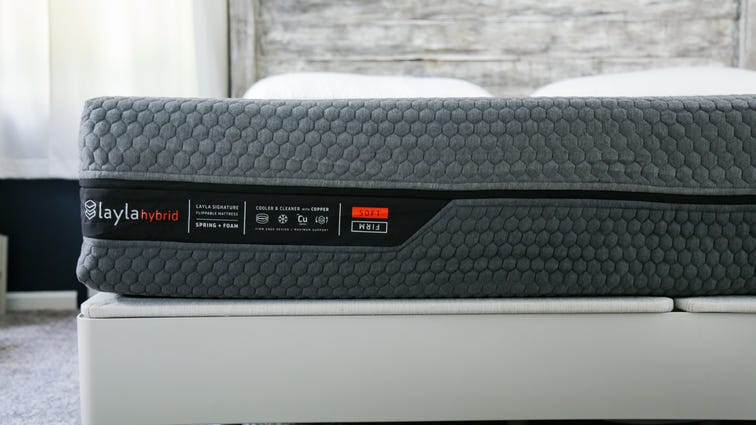
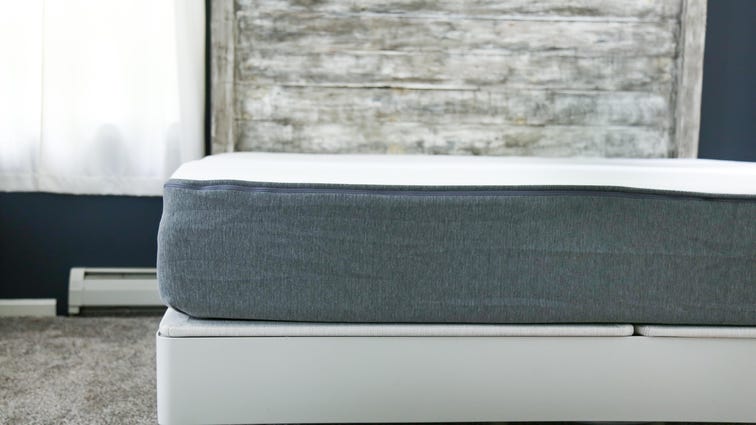
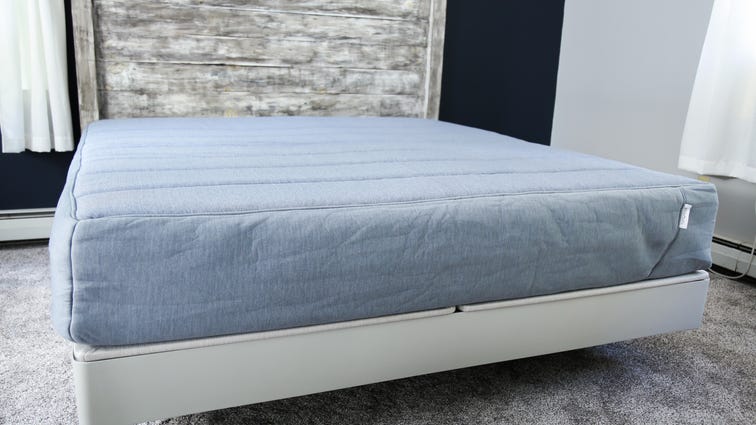
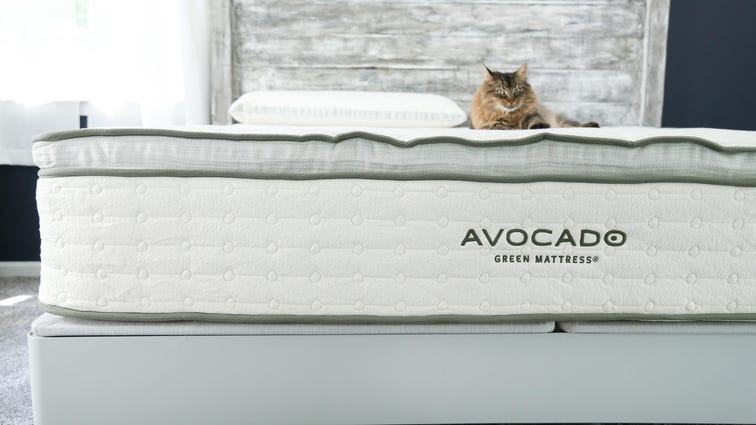
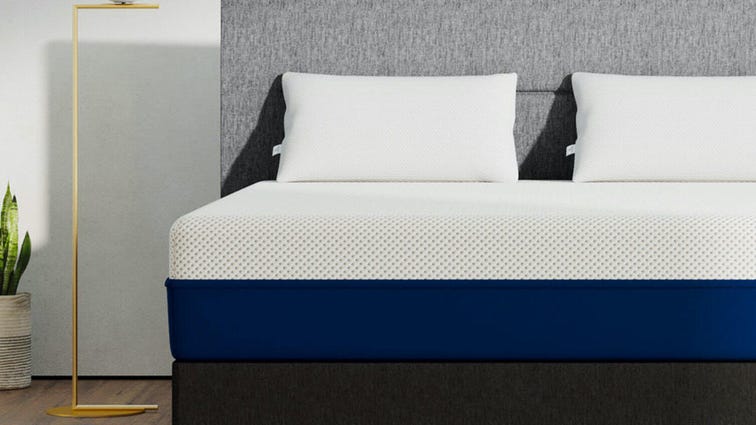

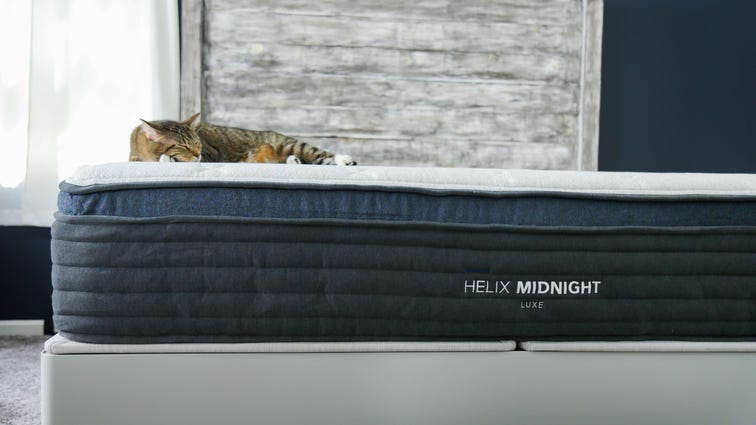
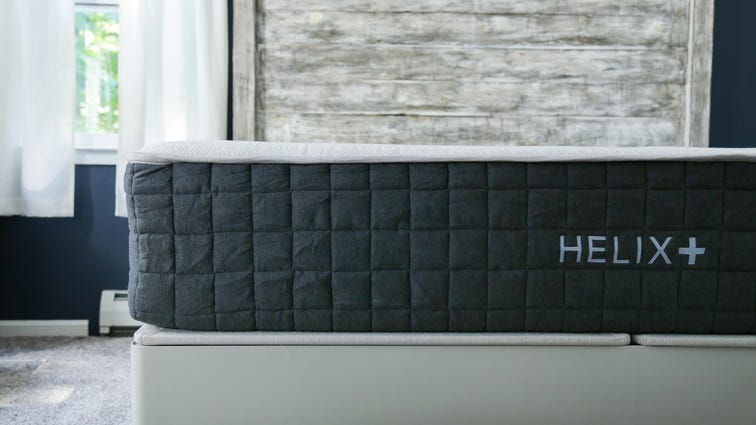
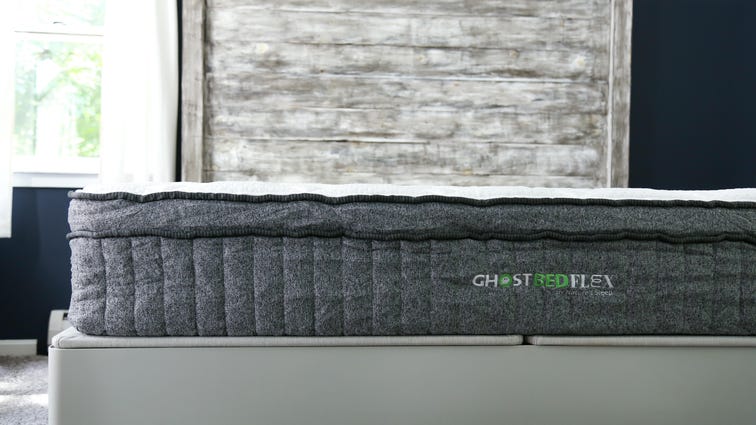
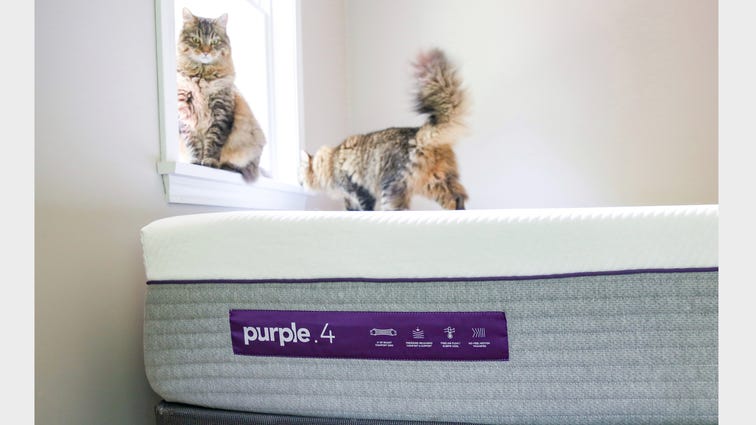


No comments:
Post a Comment